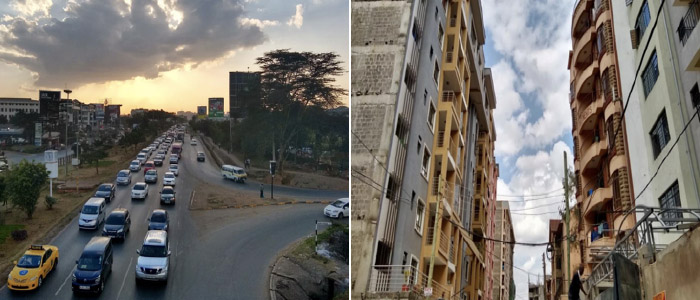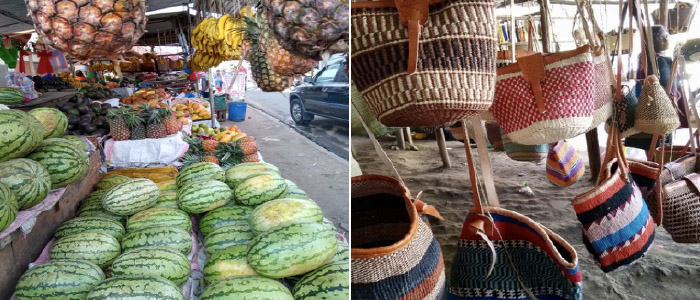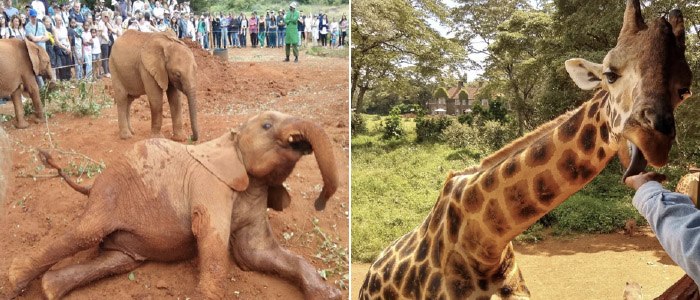 |
 |
 |
 |
notes from the field
This is a personal blog and does not reflect the views of the Red Cross Red Crescent Climate Centre
Sarah Posner
Kenya
June - September, 2019
Becoming Familiarized with “Forecast-based Financing” at the Headquarters of the Kenya Red Cross in Nairobi
July 17, 2019
View photo gallery for more photos in the field by Sarah Posner
I awake to the faint murmur of car horns and the distinct smell of burnt rubber. From the balcony, the hazy skyline glows pink as the sun peaks over the horizon, silhouetting large birds of prey that soar in concentric circles in the distance. The first two weeks of my placement with the University of Colorado Boulder (CU-Boulder) and Red Cross/Red Crescent Climate Centre (RCRCC) internship program have marked a (re)acquainting with Nairobi as I have previously spent time in rural villages in Northern Kenya but never in urban centers.

Nairobi is full of contradictions, from the frustration of navigating the streets clogged by aggressive matatus, to the brightly colored baskets and fresh foods pouring out of fruit stands, this city never misses a beat. The whir of chainsaws and buzzing sounds is a constant reminder of the rapidly changing urban landscape as apartments pop up left and right at a dizzying rate. It is no wonder that locals describe Nairobi using one word… hectic.

Touring the city sites has been immersive in both wildlife and culture and Nairobi never misses a beat. From the Giraffe Center where Rothschild Giraffes literally eat out of the palm of your hand, to the Sheldrick Wildlife Trust where infant orphaned elephants roll, roar, and play like children during bathtime while onlookers snap photos. Cultures collide on the streets from Maasai grazing their cows on the side of busy roads, to locals cooking chapati in small store fronts, I find myself immersed in the daily life of locals.

Today, July 15th, marks my first day at the Kenya Red Cross Headquarters in Nairobi as an intern on their IARP (Innovative Approaches to Response Preparedness) project on Forecast based Financing (FbF). The FbF project is part of the partnership with the IKEA Foundation and the Netherlands Red Cross (NLRC) to fight the impact of climate change and be better prepared for disasters. The FbF marks a point of departure in humanitarian interventions that enables early action before disasters have actually taken place using an impact-based forecast system rather than responding to extreme climate events ad hoc. This is important in the context of Kenya where floods are among the most severe climatic disasters while severe droughts hit the country every 25-30 years. Considering 80% of the national population of Kenya have livelihoods which are dependent on rain-fed agriculture, FbF offers an early-action solution to ensure food security to those most vulnerable to the impacts of climate variability.
My placement will focus specifically on drought events at the national scale by addressing the main research question: What are the magnitudes of extreme droughts? Previously, FbF has been limited to focusing specifically on the impacts of flooding at the county level so this project offers an important gap in the knowledge base. The aim of the project is to set reliable thresholds that can be standardized for implementation so that funds can be allocated to hot spots where droughts will have the most severe impacts based upon a prioritized list of indicators by key stakeholders.
I am enjoying my stay here in Nairobi and I look forward to beginning this project and see where this journey will take me.

